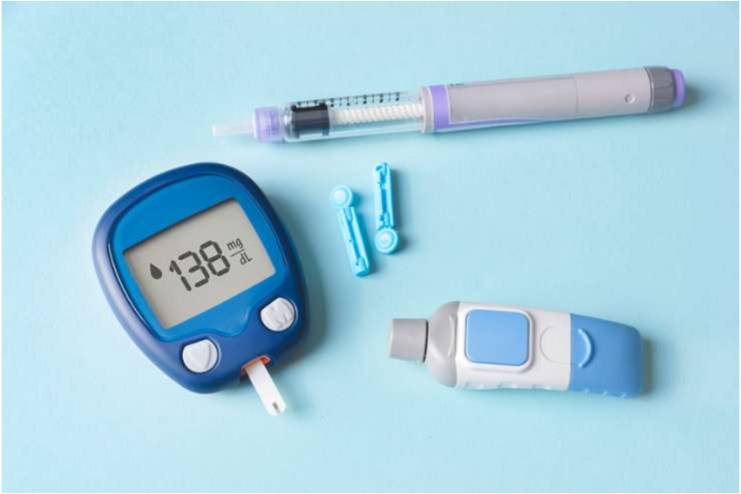Affiliate Disclaimer
Some links in this article are affiliate links. We may earn a small commission if you make a purchase through these links, at no extra cost to you. We only recommend products we find useful to our readersMany people think immediately of high blood pressure or cholesterol when they think about heart disease. On the other hand, insulin resistance (IR) is a little-known but essential component that gradually harms your cardiovascular system. When your body’s cells become insulin resistant, they cannot use insulin as efficiently, which leads to high blood sugar. In addition to type 2 diabetes, this ailment significantly increases the risk of heart disease.
Studies reveal an increased risk of inflammation, elevated triglycerides, and hypertension in individuals with insulin resistance, all of which are primary causes of cardiac problems. By identifying insulin resistance early on, you can take proactive measures to safeguard your heart and general health.
How Insulin Resistance Leads to Cardiovascular Disease
Your risk of developing cardiovascular disease can increase by as much as 18% with every point that your A1c, a blood test that tracks blood sugar levels over time, rises. Insulin resistance impacts your heart and blood arteries in various ways.
- First, constant inflammation brought on by insulin resistance destroys blood vessels and encourages the accumulation of arterial plaque. Over time, this impairs the circulatory system, which causes diabetes and heart disease in its early phases.
- Next, hyperinsulinemia, a condition in which the body produces too much insulin, is linked to hypertension and arterial stiffness. Heart failure risk increases due to this elevated pressure on the arteries.
- Lastly, high levels of LDL cholesterol and triglycerides, which are typical in people who are insulin resistant, obstruct blood flow and clog arteries, making the conditions ideal for heart attacks and strokes.
This covert metabolic storm demonstrates the close connection between heart disease and insulin resistance.

Hidden Factors That Worsen Insulin Resistance and Heart Health

The majority of people who are in the early stages of insulin resistance are unaware that they are headed toward diabetes and do not exhibit any symptoms. Furthermore, insulin resistance, also known as reduced insulin sensitivity, is typically only tested in research investigations and is not diagnosed by medical professionals.
According to the National Heart, Lung, and Blood Institute, doctors may instead diagnose a related disorder called metabolic syndrome, characterized by elevated blood pressure, high blood sugar, high cholesterol, and excess abdominal fat.
Many people do not become aware of their troubles processing blood sugar until they begin to exhibit signs of prediabetes, or type 2 diabetes, a progressive, lifelong condition. According to Cleveland Clinic, these symptoms include increased thirst, hunger, urination, impaired vision, sluggish wound and sore healing.
Diet and exercise are essential, but other not-so-well-known variables like stress, lack of sleep, and exposure to environmental pollutants can exacerbate insulin resistance and jeopardize heart health.
Stress is a hidden cause of insulin resistance and heart disease because it releases stress hormones like cortisol, which affect the cardiovascular system and raise blood sugar.
A neglected component is good quality sleep. Lack of sleep impairs the body’s capacity to control blood sugar levels, hastening the onset of insulin resistance and raising the risk of heart problems like hypertension and atherosclerosis.
Knowing these hidden causes of insulin resistance enables you to take proactive heart-protective measures by focusing on lifestyle changes that go beyond nutrition.
Why Insulin Resistance and Cardiovascular Issues Are Different for Men and Women

One of the leading causes of mortality is cardiovascular disease, or CVD. Despite having a lower incidence of cardiovascular disease (CVD) than men, women are more likely to die from acute cardiovascular events and have less favorable outcomes when they do. These gender gaps are present in several cardiovascular conditions, such as vascular illnesses, heart failure, stroke, and coronary heart disease.
Hormonal differences between men and women cause different experiences with insulin resistance and cardiovascular disease. Menopause and lowering estrogen levels are significant causes of insulin resistance in women. Because estrogen has a protective function, its decrease following menopause raises blood sugar levels, inflammation, and arterial stiffness, which in turn increases the risk of diabetes and heart disease.
Testosterone affects cardiovascular health and insulin sensitivity in males. Low testosterone levels facilitate the development of insulin resistance and cardiovascular disease by increasing the risk of insulin resistance. This hormonal imbalance raises the risk of heart attacks and strokes by hastening the onset of diseases like high blood pressure.
By recognizing these gender-specific characteristics, prevention and treatment plans can be more specifically tailored for both men and women, providing a more individualized method of controlling cardiac disease and insulin resistance.
Tools & Resources For Monitoring And Managing Insulin Resistance For Heart Health

Everything has an app: social media, games, shopping, news, and more. So why not use one to oversee your medical care? You may easily find blood glucose, nutrition, and exercise monitors on your mobile device to help you maintain a healthy lifestyle.
Diabetes can be highly stressful due to the numerous lifestyle adjustments required to control it. Correct devices are needed to manage insulin resistance for heart health. Continuous Glucose Monitors (CGMs) have increased awareness of insulin resistance in the health and wellness sectors.
Continuous glucose monitors (CGMs) assist patients in identifying patterns and modifying their behavior to reduce their risk of cardiovascular disease by providing real-time insights into blood sugar levels. Additionally, since triglycerides and cholesterol are directly related to heart health, you can monitor them with at-home lipid testing kits.
Understanding how to interpret your cardiovascular risk profile is essential. Regularly monitoring indicators like blood pressure, inflammation, and low-density lipoprotein (LDL) cholesterol will help you better understand the risk of heart disease. A smartwatch that tracks activity and sleep and monitors blood pressure supports widespread cardiovascular health.
You can proactively manage your heart health and insulin resistance using these tools.
Shop Now:
Read Also:
- How to Reverse and Prevent Insulin Resistance with Simple Lifestyle Changes
- How Lifestyle Choices Affect Insulin Sensitivity
Conclusion
An effective plan is the first step toward managing insulin resistance and heart health. Establish weekly and monthly targets to increase insulin sensitivity, such as tracking cholesterol and blood sugar levels, exercising frequently, prioritizing an anti-inflammatory diet, and maintaining a progress log, which aids in staying on course.
Embrace mindfulness in your everyday life because stress is a silent killer that deteriorates cardiovascular health and insulin resistance. Methods such as yoga, meditation, and deep breathing can lower cortisol levels and enhance heart health in general. Creating a network of support is crucial. Work with medical experts to provide individualized guidance and include family members to maintain motivation.
References
- https://www.webmd.com/diabetes/high-triglycerides
- https://healthmatch.io/diabetes/insulin-resistance#insulin-resistance-is-linked-to-many-health-problems
- https://www.webmd.com/diabetes/insulin-resistance-heart
- https://www.ncbi.nlm.nih.gov/pmc/articles/PMC2551634/
- https://journals.physiology.org/doi/full/10.1152/ajpendo.00158.2021
- https://www.ncbi.nlm.nih.gov/pmc/articles/PMC10316574/
- https://www.bhf.org.uk/what-we-do/news-from-the-bhf/news-archive/2021/june/insulin-resistance-linked-to-increased-risk-of-sudden-death
- https://www.cdc.gov/heart-disease/about/index.html
- https://www.ahajournals.org/doi/10.1161/CIRCOUTCOMES.114.001563
- https://diabetes.org/health-wellness/insulin-resistance
- https://www.ncbi.nlm.nih.gov/pmc/articles/PMC380256/
- https://academic.oup.com/jcem/article/86/2/713/2841063
- https://www.webmd.com/diabetes/insulin-resistance-syndrome
- https://my.clevelandclinic.org/health/diseases/22206-insulin-resistance
- https://www.nhlbi.nih.gov/health/metabolic-syndrome
- https://my.clevelandclinic.org/health/diseases/22206-insulin-resistance
- https://www.livescience.com/34757-insulin-resistance-develop-diabetes-heart-disease.html
- https://www.pharmacytimes.com/view/insulin-resistance-recognizing-the-hidden-danger
- https://healthmatch.io/diabetes/insulin-resistance#what-happens-when-we-become-insulin-resistant
- https://www.jci.org/articles/view/10762
- https://www.sciencedirect.com/science/article/abs/pii/S0021915096060388
- https://academic.oup.com/jcem/article/98/11/E1716/2834440
- https://www.sciencedirect.com/science/article/pii/S2590093519300256
- https://www.ncbi.nlm.nih.gov/pmc/articles/PMC10605445/
- https://www.ncbi.nlm.nih.gov/pmc/articles/PMC2908522/
- https://www.heart.org/en/health-topics/diabetes/diabetes-tools–resources
In this Article



















